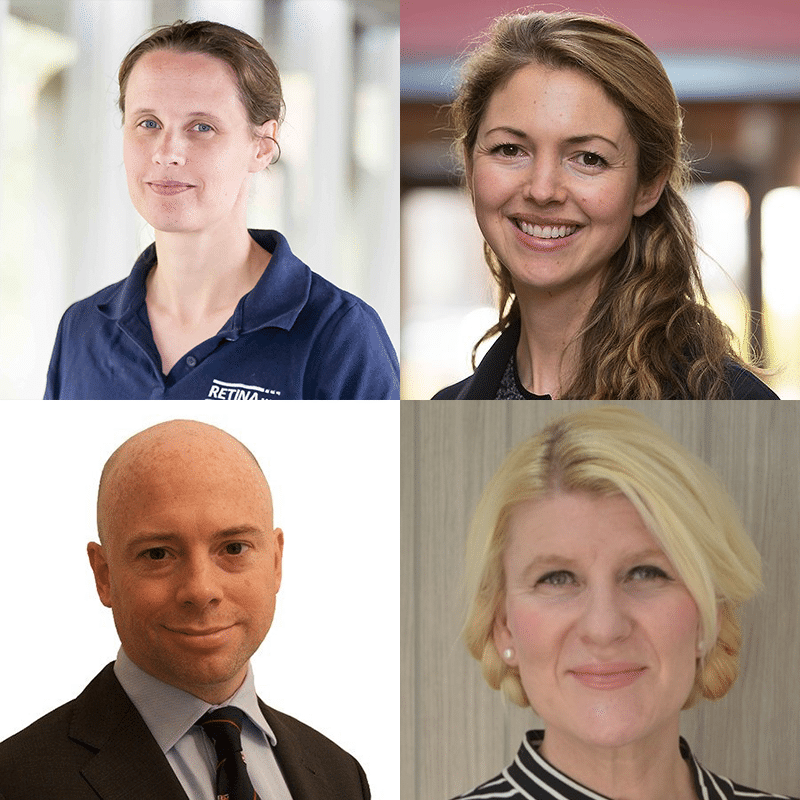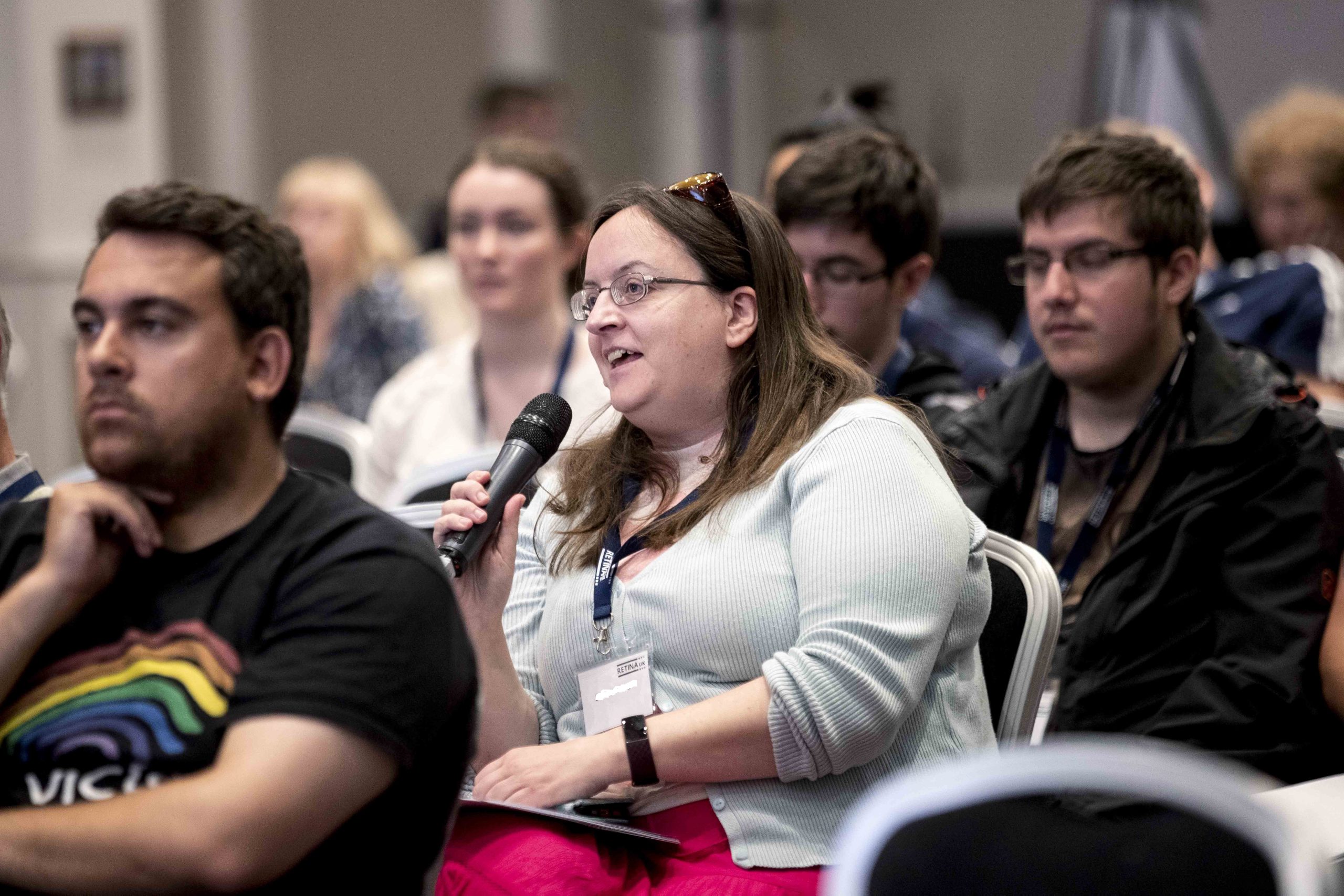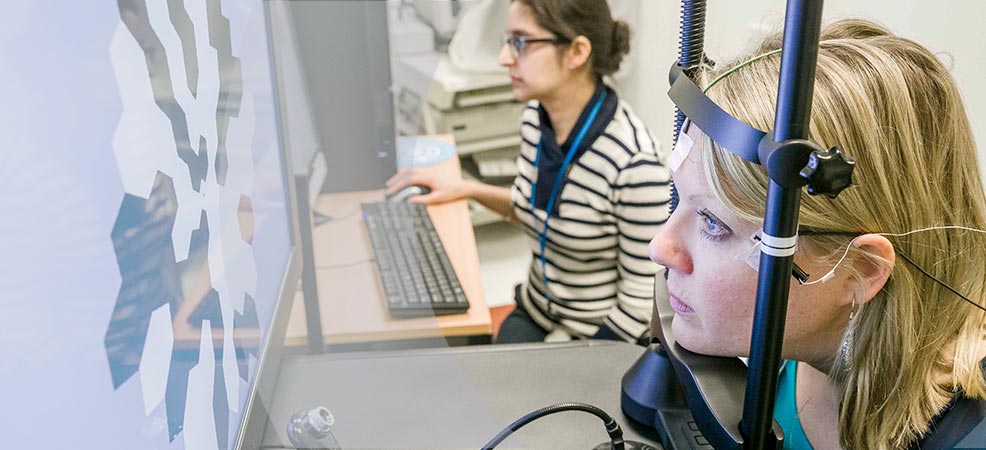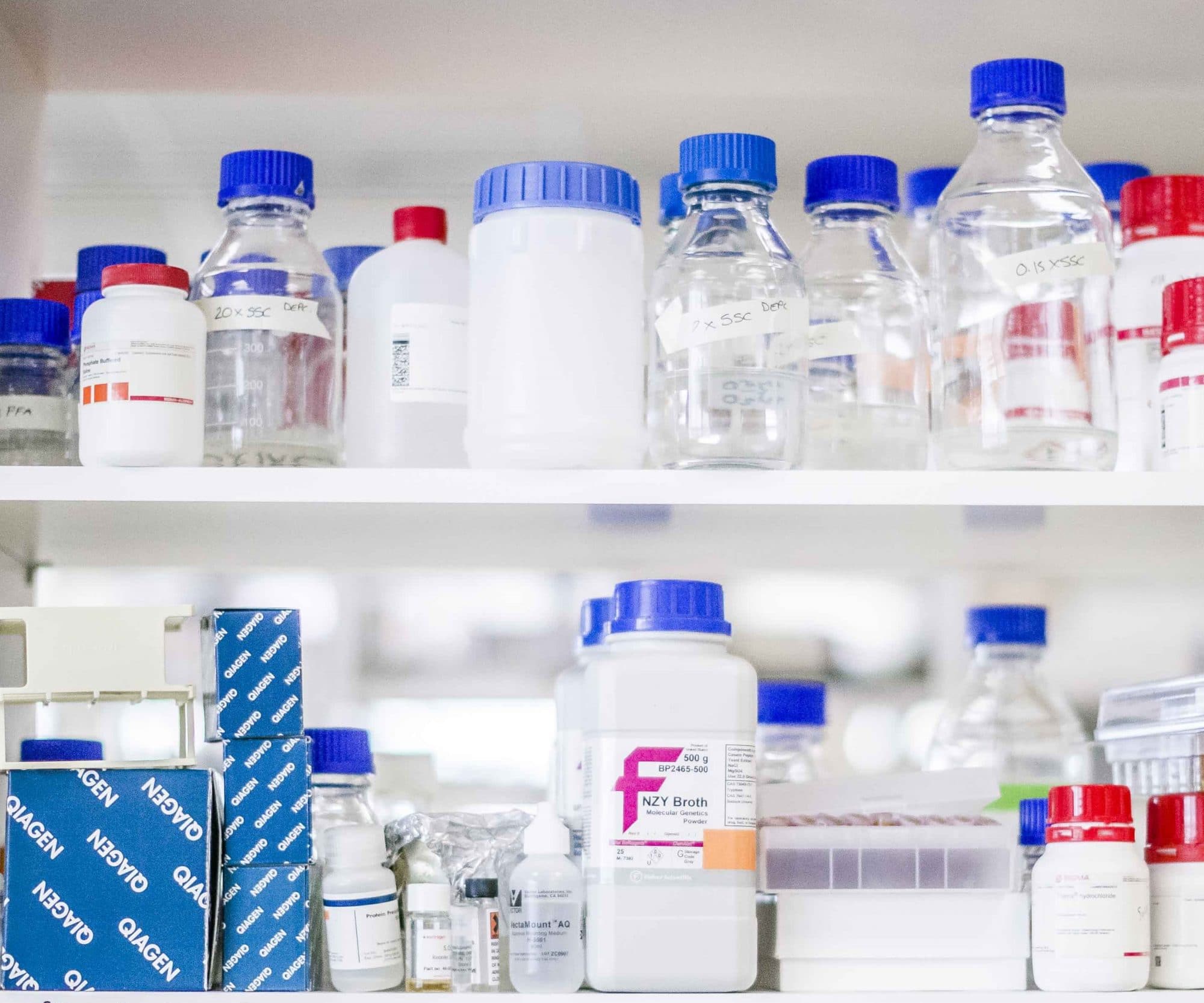
Webinar: Usher syndrome mini series – part one
This webinar covers key questions and topic areas including what Usher syndrome is, how to get a diagnosis, both clinical and genetic, and what will happen after this.
Usher syndrome is an inherited condition that affects both hearing and vision.
The symptoms of Usher syndrome consist of childhood-onset hearing loss, progressive vision loss caused by degeneration of the retina (retinitis pigmentosa), and sometimes balance problems.
Retinal degeneration can be one feature of a genetic condition that also affects other body systems. Certain genetic faults that cause damage to the eye can also impact other organs and tissues. Where more than one body system is involved, the condition is called a syndrome. However, the sight loss aspect can be very similar to that experienced by people living with non-syndromic retinitis pigmentosa.
There are three different clinical types of Usher syndrome, type 1, type 2, and type 3.
Hearing loss is the first symptom to become apparent, usually from birth. Sight loss follows a similar pattern to non-syndromic retinitis pigmentosa; early symptoms include night blindness and reduced peripheral vision, with central vision loss occurring later.
People with Usher type 1 develop profound deafness from birth and first signs of visual loss starts in early childhood.
The deafness is generally so early in onset and so severe that hearing aids may not be of value, although cochlear implants may be beneficial. Balance is often affected in those with type 1 and can slow the development of sitting or walking.
People with Usher type 2 also experience early onset hearing loss but this is less severe than in type 1 and can be managed with hearing aids. Sight loss usually becomes apparent during the teenage years. Balance is generally not affected.
Usher type 3 is very rare and is more common in Finland and among Ashkenazi Jews. Hearing at birth is usually normal but is lost during late childhood and becomes worse over time, with sight beginning to deteriorate during adolescence.
The prevalence of Usher syndrome varies from country to country, but it is a rare condition affecting approximately four to 17 per 100,000 people. Usher syndrome occurs when there are mutations in genes that are important for the function of the photoreceptors in the retina and the sound-sensing “hair cells” in the cochlea, or inner ear.
So far, researchers have found 11 genes that are associated with the three main subtypes of the syndrome. Usher syndrome occurs equally in both genders and is always inherited in a recessive pattern, meaning that both a person’s copies of the gene must be faulty for the condition to occur. Find out more at RetinaUK.org.uk/genetics/inheritance-patterns.
Current treatment focuses on helping an individual to adapt to hearing and vision loss and to maximising the vision and hearing that they do have. This includes the use of hearing aids, assistive listening devices, cochlear implants, mobility training, and low vision services.
The wide range of assistive technologies available provides plenty of choice for users at all stages of sight and hearing loss and this technology has also removed many barriers to education and employment.
Researchers are exploring a number of approaches to treating sight loss in Usher syndrome and there are clinical trials underway. Usher syndrome gene therapy is quite challenging as the genes affected tend to be extremely large in size and difficult to deliver into cells.
However, a project funded by Retina UK has enabled early development of a method to safely deliver these larger genes. This requires further work before it can be tested in people. Other approaches include ‘silencing’ the faulty section of genetic code or editing the genetic code. Alternatively, a treatment that is designed to work regardless of the underlying genetic fault could work for sight loss in Usher syndrome. Such treatments include cell-based therapies and more traditional drugs.
Visit RetinaUK.org.uk/medical-research/joining-the-research-effort for clinical trials information. If you are considering joining a trial always discuss it with your usual ophthalmologist or family doctor first. Participation in a genuine clinical trial will never require payment.
You can also read about possible treatment approaches for retinal disease at RetinaUK.org.uk/medical-research/approaches-to-treatment and the latest news about research at RetinaUK.org.uk/research-news.
Many treatment approaches are specific to a particular gene fault, so it is important that those affected by the disease are referred for genetic testing so that they can access new treatments and clinical trial opportunities.
The Retina UK Helpline provides information, support and signposting for people affected by inherited sight loss as well as healthcare and education professionals.
Contact 0300 111 4000 (9.00am – 5.00pm Monday to Friday and Tuesday and Thursday evenings 5.00pm – 8.00pm) or email [email protected].
Gene Vision gene.vision/knowledge-base/usher-syndrome-for-patients. Retina UK joint funded Gene Vision and input into accessibility and content.
Those who join the Retina UK Lived Experience Panel receive an email from us when we are made aware of participation opportunities such as focus groups, surveys and research projects. Sign up at RetinaUK.org.uk/get-involved/lived-experience.
Professionally reviewed by Professor Mariya Moosajee. September 2024. PDF file 322 KB.

This webinar covers key questions and topic areas including what Usher syndrome is, how to get a diagnosis, both clinical and genetic, and what will happen after this.

Professor Mariya Moosajee looks at the latest research, clinical trials and treatment prospects for people affected by Usher’s syndrome.

Your doctor or genetic counsellor will spend some time asking about other people in your family to try to work out the way in which your particular faulty gene has been passed down through the generations – this is referred to as the inheritance pattern.

Many research studies could not take place without the participation of people living with inherited sight loss.

The development of a new treatment is a lengthy process, from early investigation of ideas and principles in the lab, through testing in cell and animal models to the final stages of clinical trials in human patients. The good news is that progress is increasingly rapid.

Our Retina UK Peer Support Group network offers information and support via regular meetings both online or in-person.

The content on this site will have answered some of your queries about inherited sight loss and associated syndromes, but everyone’s circumstances are different and you may have further questions.

Find out about our upcoming events. Whether you're looking for a webinar, a local peer support group or you're hoping to run a marathon, we've got something for you.

Our sight loss survey highlighted that you have a real appetite to get involved in representing the inherited sight loss community through activities like focus groups, surveys and research projects via the Retina UK Lived Experience Panel.

We are currently funding a range of exciting projects and programmes, all of which aim to enhance our understanding of inherited sight loss, and inform the development of treatments for the estimated two million people affected worldwide.

Since we were founded in 1976, we have invested more than £18 million into some of the most pioneering medical research - because of amazing supporters like you.